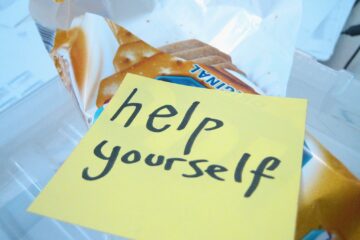This article is not my own. Sagar has written it and agreed for me to share it with you.
He is a logical person who makes a huge effort to research and analyse things objectively before sharing his views. This is why I am confident enough to share this with you.Â
Please read, with an open mind as the information is quite enlightening.Â
I got an e-mail recently from a vegan friend who recently received an e-mail about the links between Soya and Breast cancer. Â It got me thinking.
Although a vegan diet does not necessarily need to have soy in it, most of them do, but rejection of soya does not necessarily mean that veganism is a bad thing….
Anyway, I found that these two websites were useful in gathering thoughts….
1) Cancer Research – http://www.cancerhelp.org.uk/help/default.asp?page=4126
2) http://www.bryannaclarkgrogan.com/page/page/3476771.htm#should
Here are my thoughts / observations from what I have read:
1) Soya is said to have isoflavones which are said to be phyto-oestrogens – they are plant chemicals that mimic human oestrogens.
2) The impact of soya on oestrogen levels is unclear – some say it increases oestrogen levels, others say it reduces them because oestrogen receptors in the body detect them and stop producing the human hormone.
3) The research done seems to indicate that soya may be beneficial in reducing cancer. Studies have found that women with soya in their diet have longer menstrual cycles (fewer cycles over their life) which is linked to lower cancer rates, and some studies have found soya linking to lower cancer rates. However, some studies have also found negative effects. In general the samples are small, and there have not been that many so the results are mainly inconclusive.
4) Breast cancer treatment often works by reducing oestrogen in the body (oestrogen fuels cancer growth), and so it is advised that women with breast cancer should not take soya products (because of their phyto-oestrogens and their unknown interaction with human oestrogen). This fact may be the think that creates people think that the link between soya and cancer is so strong.
5a) However, this does not mean that soya contributes to the development of the cancer in the first place. My intuition tells me that most of the time, cancer or whatever disease or problem is probably going to develop anyway, it’s just that a diet may help advance it or hold it back. Healthy people with great diets have cancer, as do people with unhealthy diets…
5b) It’s important to bear in mind that many scare stories about cancer are about individuals. The evidence is anecdotal at best. It’s best to rely on studies with larger sample sizes, but unfortunately not that much research has been done.
6a) I think it is worthwhile noting that many other food products contain phyto-oestrogens, and given that cows typically eat a lot of soy, and milk comes from the cows udders (lots of hormones going on to produce it), cow milk probably contains lots of phyto-oestrogens and mammal oestrogens too. So if oestrogens are the link, I’m not sure so much stick should be given to soya.
6b) Regardless of what the studies say, I think I have too much soya in my diet. And, in general, I’d say having too much of something probably isn’t too good for you. Personally, I would rather use another alternative to cow milk, but soya is just so cheap and so widely available.
7) That is not to say that we do not have too much of other things. I personally think I eat too much wheat compared to other grains like quinoa, oats, corn, rice, millet, spelt, barley and rye. I think the general population probably has too much wheat, and too much fat, but because lots of people have it, it doesn’t seem that bad and as alarming! I’m not sure if you drink (I do) but I know there are lots of links between drinking and cancer – but I don’t see people sending out these e-mails saying don’t drink because it causes cancer, because in general because so many people drink it is seen as socially acceptable, even if people know it is bad.
8) There is a lot of anti-soya propaganda out there – either from dairy industry people who see it as a threat, or otherwise [In India I came across anti-soy from the Indian government because it saw it as a Chinese product that was a threat to the Indian dairy industry). It’s hard to know whether these stories are coming from propaganda or not.
9) If people are on special diets, if something goes wrong, the diet will get blamed, even if what goes wrong was going to happen anyway.
Â
Michami Dukkadam
I seek forgiveness if I have caused offenceÂ
Sagar K Shah


2 Comments
Cancer Treatment Cure · September 13, 2009 at 3:00 am
I have done some research regarding soy and breast cancer, given that japan and most of asia has a far lower rate of breast cancer than say for example the usa, I would think that soy would be beneficial in your diet. However If you decide to add more soy to your diet, stay with whole soy foods such as tofu, soy milk, and edamame rather than processed foods made with soy isolate or isolated soy protein. Additional to this I would skip soy supplements, which contain high, and possibly dangerous, amounts of isoflavones. If you would like to find out more about beneficial foods that can prevent cancer theirs a good book at http://www.cancertreatmentcure.com you can download free. An interesting subject to raise tho heena.
kelly · October 7, 2009 at 6:51 am
Thank you for this topic!
It is not the unfermented soya beans that benefit cancer patients, because unfermented soya beans contain the toxic phytic acid. This acid once in the body prevents from properly absorbing nutrients required to fight cancer.
This is one reason why I think food manufacturers and for those who make our own “soy milk” should re-think about the “folk lore” methods our Asian ancestors have long relied on. They did not ferment the soya beans without good reason.
There is also a question of whether soy products are made from GMO (genetically modified foods). They are radically different where nutrition and safety levels of the food are concerned.
Another problem is that of “disease research’. Most of such research actually study drugs, not the medicine itself!
Some clinical trials – if done – are not done in ways that are justifiable. The makers behind conventional medicine do not usually test foods on a “grand scale” because to them, foods are cheap and do not bring them a lot of money.
Food technologists and virologists can reveal a lot, sometimes to the detriment of their own careers or lives. Beware of what you eat!
I leave you with some references that may benefit you and your readers:
“Inherently, soy contains anti-nutrients such as enzyme inhibitors, which interfere with the digestion of protein.” — http://www.rwood.com/Articles/Soy_Toxin_or_Tonic.htm
“Most of what is labeled “vegetable oil” in the U.S. is actually soy oil, as are most margarine. Soy oil is the most widely used oil in the U.S., accounting for more than 75 percent of our total vegetable fats and oil intake. And most of our soy products are now genetically engineered.” — Dianne Gregg, HiddenSoy.com
Be blessed!
kelly
Comments are closed.